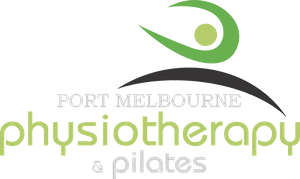We all know that pregnancy causes a whole gamut of symptoms. These include changes to your body shape, mood, appetite, and of course fitness/activity levels. And just when you think you have figured it out, everything changes again as you move through the trimesters. So what is actually happening to your body during pregnancy and why?
Its all about the HORMONES
We have all heard about these crazy pregnancy hormones, but what are they and how do they affect us? Hormones are special chemical messengers in the body created by the endocrine glands. They control most major bodily functions such as hunger, emotions and reproduction.
The two main hormones which affect pregnancy are estrogen and progesterone. A woman will produce more estrogen during one pregnancy than she will throughout the rest of her life.
Here is a quick summary of what happens to a woman’s hormone levels at different stages of pregnancy:
• Estrogen: levels rise dramatically during the first trimester, often causing nausea. During the second trimester estrogen has a role in developing milk ducts, leading to enlarging of the breasts. Estrogen enables the placenta and uterus to transfer nutrients and support fetal development. It also has a role in dilation and reduction of tone in blood vessels.
• Progesterone: levels are high during the whole pregnancy and lead to a laxity/loosening of ligaments and joints in the body. High levels of progesterone also lead to an increase in size of internal structures such as ureters and the placenta. This allows for accommodation of the growing fetus.
• Relaxin: in preparation for labour Relaxin relaxes the ligaments in the pelvis and softens and widens the cervix.
So how does this affect exercise during pregnancy?
Due to the loosening of ligaments, pregnant women may be at greater risk of injury, especially if undertaking high impact exercise. During pregnancy the curvature in the lumbar spine naturally increases, due to the abdomen becoming very convex. The load on the upper spine also increases due to breast enlargement. The entire body posture changes and this may lead to the development of spinal and pelvic pain, impacting the type of exercise woman are able to participate in.
The reduction of tone in blood vessels may also lead to dizziness as blood pressure can suddenly drop. This may be particularly noticeable during position changes, e.g. getting up from lying down, and can therefore affect the type of exercise and the speed at which pregnant women are able to perform it. Lying flat after 20-24 weeks is also not recommended as the weight of the abdomen can compress the vena cava, leading to a drop in blood pressure and dizziness.
What exercise is ok during pregnancy?
Always consult your obstetrician or GP prior to commencing or continuing any exercise program while pregnant. Generally exercise you have been previously undertaking is ok to continue during the first trimester, however high impact exercise and body contact sport will need to reduce or cease after this time. Low impact exercise such as swimming and Clinical Pilates can help reduce the affect that pregnancy hormones have on the body, by assisting in strengthening the muscles around the spine and other joints. Maintaining regular low impact exercise throughout your pregnancy is important to help reduce fluid retention, maintain fitness levels in preparation for labour and is also thought to improve blood supply to the uterus at rest.
If you have any further questions contact us today on 96817255 or for more info on Pilates click here. To book an appointment with a physio to get started on a Clinical Pilates program contact us here.
~Sal

